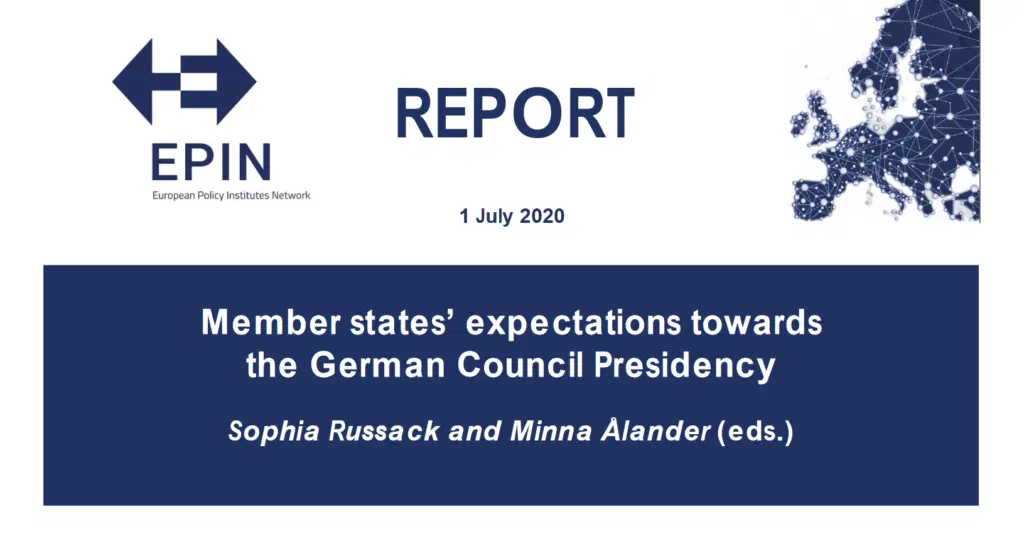Očekávání členských států od německého předsednictví v Radě EU

As Germany assumes the presidency of the Council of the EU, the Union is facing the “biggest test of its history” according to German Chancellor Angela Merkel. The challenges of the Covid-19 pandemic and a severe economic recession could not be more extraordinary. The weight of expectations on Berlin to assume a European leadership role during the presidency are as extraordinary as those challenges. What exactly do other member states expect from Germany and how do they set their policy priorities? To answer this, the European Policy Institutes Network (EPIN) has compiled an analysis of 15 different national perspectives.
Czechia hopes that Germany will forge a compromise that ensures more funding for the cohesion policy and more flexibility to use those funds, including those allocated to the European Green Deal. Czechs look towards the German presidency in hope that the salience of the Green Deal will fall, arguing instead that the pandemic requires a delay – or even abandonment – of a principally green-based restructuring of the economy. The fact that studies based on the previous financial crisis indicate that green investments are ideally positioned to spur economic recovery is ignored; the resistance towards climate neutrality in Czechia is ideological rather than empirical.
Celý příspěvek si můžete přečíst skrze tlačítko PDF vpravo.
Další publikace sítě EPIN, jejímiž jsme členy, najdete zde.





